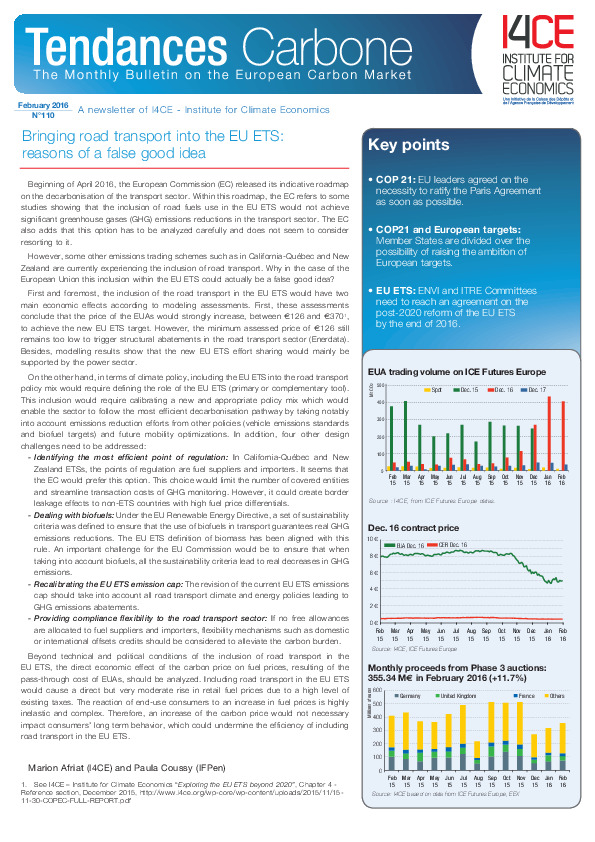Bringing road transport into the EU ETS: reasons of a false good idea
Beginning of April 2016, the European Commission (EC) released its indicative roadmap on the decarbonisation of the transport sector. Within this roadmap, the EC refers to some studies showing that the inclusion of road fuels use in the EU ETS would not achieve significant greenhouse gases (GHG) emissions reductions in the transport sector. The EC also adds that this option has to be analyzed carefully and does not seem to consider resorting to it.
However, some other emissions trading schemes such as in California-Québec and New Zealand are currently experiencing the inclusion of road transport.
Why in the case of the European Union this inclusion within the EU ETS could actually be a false good idea?
